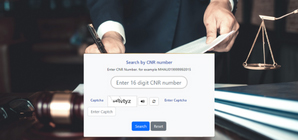 138ni act
138ni act
3 weeks ago
sir i taking loan in 2016.complaniant transfer money through bank transfer in 2016 i issued blank cheque and pronote after recover money he didn't retun resently he files cheque bounce case on me 138 ni act 2023. he filling pronote and cheque .and he executive he take loan in 2022and he issued cheque 2024 January.the cheque leaf:204032 he creats i issued in jan 2024 in my cheque book the next leaf:204033 i used in 2016 (how the court consider this ) what happened this case
A.Dear Client,
A promissory note is a legally binding promise to repay a debt. Promissory note laws vary by state, but they typically include the loan amount, loan terms and signatures from both the lending and borrowing party. When this document is signed by the borrower, it becomes a legally binding contract and the lenders can claim a refund of the loan by filing a suit under the Negotiable Instrument Act, 1938. All Promissory Notes are valid only for a period of 3 years starting from the date of execution Similarly when a person issues a blank cheque against a promise or against any refund of money refundable by her or him and in the absence of any agreement, the cheque receiver holding the said cheque is free to present the same for encashment on any date by putting a date and amount on the cheque and if the cheque is dishonored or bounced for any reason, then holder of the Cheque can file a criminal suit against the drawer of the cheque under section 138 N I Act, 1938 within three months from the date on which it was presented in the bank. A blank cheque leaf, voluntarily signed and handed over by the Drawer of the cheque, which is towards some payment, would attract presumption under Section 139 of the N.I. Act and on dishonor of the said cheque, the drawer of the cheque will be held accused under Sec. 138 of N I Act, 1938. A legal notice has to be served on the drawer of the cheque within 30 days of the instance of dishonor. The purpose is to give the drawer of the cheque a proper notice regarding the dishonor of the cheque irrespective of the reason behind the dishonor of the cheque and a chance to repay. Cause of action arises when notice is served on the drawer and the drawer fails to make payment of the amount of the cheque within 15 days. In the given scenario, if a cheque-bounced case is lodged against you, you need to prove that the money was fully repaid to the petitioner of the cheque-bounced case. So, you need to consult with an Advocate for guidance and steps.
A promissory note is a legally binding promise to repay a debt. Promissory note laws vary by state, but they typically include the loan amount, loan terms and signatures from both the lending and borrowing party. When this document is signed by the borrower, it becomes a legally binding contract and the lenders can claim a refund of the loan by filing a suit under the Negotiable Instrument Act, 1938. All Promissory Notes are valid only for a period of 3 years starting from the date of execution Similarly when a person issues a blank cheque against a promise or against any refund of money refundable by her or him and in the absence of any agreement, the cheque receiver holding the said cheque is free to present the same for encashment on any date by putting a date and amount on the cheque and if the cheque is dishonored or bounced for any reason, then holder of the Cheque can file a criminal suit against the drawer of the cheque under section 138 N I Act, 1938 within three months from the date on which it was presented in the bank. A blank cheque leaf, voluntarily signed and handed over by the Drawer of the cheque, which is towards some payment, would attract presumption under Section 139 of the N.I. Act and on dishonor of the said cheque, the drawer of the cheque will be held accused under Sec. 138 of N I Act, 1938. A legal notice has to be served on the drawer of the cheque within 30 days of the instance of dishonor. The purpose is to give the drawer of the cheque a proper notice regarding the dishonor of the cheque irrespective of the reason behind the dishonor of the cheque and a chance to repay. Cause of action arises when notice is served on the drawer and the drawer fails to make payment of the amount of the cheque within 15 days. In the given scenario, if a cheque-bounced case is lodged against you, you need to prove that the money was fully repaid to the petitioner of the cheque-bounced case. So, you need to consult with an Advocate for guidance and steps.
Helpful
Helpful
Share
Read Related Answers
Dear Client,
To address a false complaint or false criminal proceedings filed against you, you can seek its quashing through a petition before the High Court under Section 482 of the Code of Criminal...
Dear Client,
Generally, FD can considered as a legitimate form of security for bail in cheque bounce case. However, in most of the cases it involves specific procedural requisites, wherein, the bank c...
Dear Sir,
You just file cheque bounce case against him and then let him contest the case and prove his defence which is very hard.
Dear Client,
According to Section 138 of Negotiable Instruments Act, cheque bounce is a punishable offence with an imprisonment of up to two years and fine up to twice the amount of cheque. So, the ag...
Dear Client,
a cheque bounce case under sec 138 of the NI act must be filed within 1 month of the act and legal notice must be sent within 45 days of the offence, but if the arrest is made 5 years af...
Read Blogs on Cheque Bounce
Cheque Bounce Lawyers

Find Lawyers by Location

























